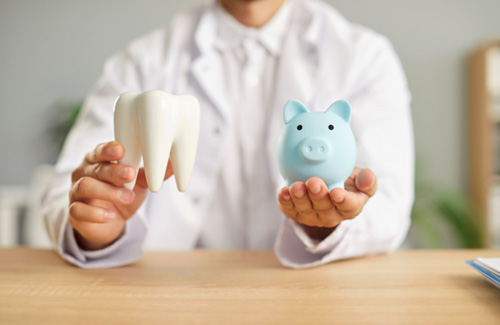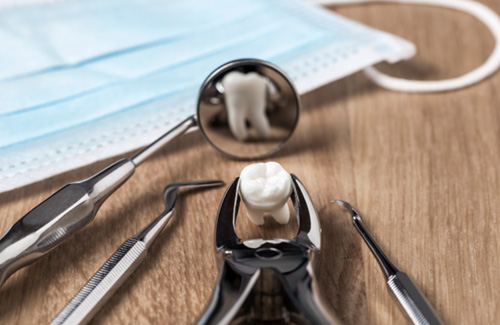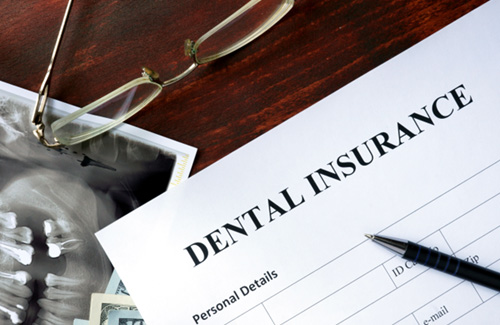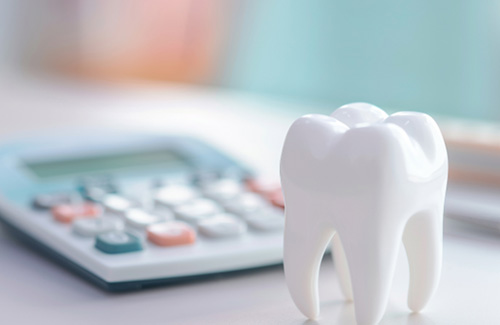Tooth Extractions – Orem, UT
When a Tooth Is Beyond Saving

Dr. Dansie comes to our Orem dental office about once or twice a month to perform any tooth extractions that our patients might need. This procedure should be viewed as a last resort; we will always explore whatever options are available for saving your natural teeth, but in some situations, a tooth extraction in Orem may be the only choice for making sure that existing dental issues don’t grow any worse. If you have any reason to think that one of your teeth might need to be removed, don’t waste any time; give Frandsen Dental of Orem a call immediately to schedule an appointment with our team.
Why Choose Frandsen Dental of Orem for Tooth Extractions?
- Extractions Performed by a Knowledgeable Dental Expert
- Dental Implants and Other Tooth-Replacement Options
- State-of-the-Art Treatment Planning Technology
Reasons Why Tooth Extractions Are Necessary

The decision to remove a tooth is never one to be made lightly. After all, in many cases, it may be possible to save the tooth in question with the right restorative treatment. We will always consider the specifics of your situation very carefully, and we will only recommend a tooth extraction if other solutions have already been ruled out.
You may need a tooth extraction performed if any of the following apply to you:
- You have severe tooth decay that is threatening to affect your other teeth.
- Your tooth has been badly damaged in an accident.
- You are unable to have orthodontic treatment performed because your teeth are crowded too closely together.
- You are planning to get dentures but some of the teeth being replaced are still in your mouth.
- You have suffered from extensive bone loss in the jaw due to gum disease (which can cause your teeth to come loose).
The Process of Removing a Tooth

There are two ways Dr. Dansie can remove your tooth. The first is with a simple extraction, which involves him gently rocking the tooth loose until it’s ready to be removed. The second is a surgical extraction, which is used when the tooth that needs to be extracted is trapped underneath the gumline. In this case, a small incision needs to be made first so that he can access the tooth. The good news is that even though these two approaches are quite different, they start with the same step: numbing your mouth thoroughly.
Tooth Extraction Aftercare

Most patients take a day or two off of work following their appointment so that they can focus solely on resting. During this time, it’s important that you:
- Avoid strenuous physical activities, like running or lifting weights
- Don’t smoke, spit, or drink through a straw
- Take OTC pain medication as directed
- Stick to soft foods, like plain yogurt and applesauce
- Drink water to stay hydrated
- Keep your head elevated while you sleep
- Change the gauze as needed
Understanding the Cost of Tooth Extractions

Although our Frandsen Dental of Orem team usually does everything we can to protect and preserve your natural teeth, there are some circumstances in which removing them is the best way to preserve your dental health. Many patients have questions when they learn they need to have a troublesome tooth pulled, like how much their treatment will cost.
The answer varies from person to person because it depends significantly on your unique situation. Continue reading to learn more about how pricing is determined, and feel free to contact us with additional questions!
Factors That Can Affect Tooth Extraction Cost

Determining an exact rate for your procedure in advance is difficult because several factors can influence the amount due. Once you’ve consulted with one of our providers, we’ll provide a detailed estimate for your approval before proceeding.
Some considerations that can influence how much you’ll owe for your extraction include:
- Where the tooth is located. Molars in the back of your mouth have additional roots and are harder to access, which require additional time and effort to remove, increasing the total.
- The severity of your condition. If the damage is too extensive, a specialist may need to be recruited to assist and must also be paid.
- The type of replacement tooth. Different restorations like dentures, dental bridges, and dental implants all have their own pricing structures.
Does Dental Insurance Cover Tooth Extractions?

Many dental insurance policies cover about 50% of the cost of tooth extractions to reduce your out-of-pocket expenses. However, there may be restrictions you should be aware of, like a waiting period that must pass before benefits kick in, or a designated number of teeth that can be treated.
It’s worth checking the details of your insurance plan to verify what’s covered. Please let our friendly office staff know if you’re struggling to find the information or would like help with claims forms. They know the ins and outs and can help you maximize your coverage.
How to Make Tooth Extractions Affordable

Removing an aching or infected tooth can be intimidating enough without worrying about how much it costs. Our team understands that not everyone carries dental insurance, and we don’t want your finances to keep you from undergoing a smile-saving treatment.
If you’re concerned about how to pay for your procedure, you might benefit from one of the following options:
- In-House Memberships. For a low annual or monthly fee, you gain access to basic preventive services and discounts on other treatments offered in the office. Contact us for more information!
- Flexible Financing. We have also proudly partnered with third-party financer, CareCredit, to allow you to divvy your total invoice amount into more manageable installments over a designated period.
Tooth Extractions FAQs
Can I Leave the Space Empty After a Tooth Extraction?
That depends on the reason the tooth was extracted! If it was removed to make room in your mouth prior to orthodontic treatment, then the space should be left empty. If it was removed because the tooth was damaged beyond the point of repair, then we do recommend replacing it with a dental bridge or implant. That way, you have a healthy smile, a strong bite, and renewed confidence.
Can I Smoke After Getting a Tooth Extracted?
Smoking shortly after your procedure can lead to several complications as well as delayed healing. That’s why it’s of the utmost importance that you don’t smoke for at least five days. Of course, we know that’s sometimes easier said than done. So, if you’ve had trouble quitting in the past, don’t hesitate to let us know! We’re not here to judge. Instead, we want to know so we can help you prepare in advance.
It’s of the utmost importance that you don’t smoke for at least five days after your procedure. If you don’t, then numerous complications can arise, including delayed healing.
What Can I Do to Speed Up the Healing Time?
Some patients love the idea of spending several days resting and relaxing. For others, it’s a nightmare. If you share the sentiment of the latter, then you may be wondering what you can do to speed up the healing time and get back to your day-to-day routine. The short answer is “follow all of the aftercare instructions.” That starts with keeping your head elevated and extends to not exercising or smoking. If you do too much too soon, then you can delay the healing process significantly.
Is There Anything I Can’t Eat After My Tooth Extraction?
Yes! Following your tooth extraction, you should steer clear of crunchy, sticky, and sugary foods, including hard pretzels, taffy, and caramel-filled candies. It’s also of the utmost importance that you check the temperature of your food first (remember, the extraction site will be sensitive!).
Tip: Eat lots of foods that are softer in consistency and aren’t loaded with added sugar, like seedless fruit smoothies, cottage cheese, and oatmeal. Not only are they easy to eat, but they will also ensure your body has the vitamins, minerals, and nutrients it needs to help you heal.
Does Getting a Tooth Extracted Hurt?
This list of frequently asked questions would not be complete without answering this one. If this is something you’ve been wondering yourself, we have good news: your time in the treatment chair will be virtually painless because we numb your mouth thoroughly beforehand. Not only that, but we will send you home with detailed aftercare instructions to help you heal comfortably as well.
